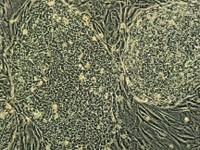Advertisement
Grab your lab coat. Let's get started
Welcome!
Welcome!
Create an account below to get 6 C&EN articles per month, receive newsletters and more - all free.
It seems this is your first time logging in online. Please enter the following information to continue.
As an ACS member you automatically get access to this site. All we need is few more details to create your reading experience.
Not you? Sign in with a different account.
Not you? Sign in with a different account.
ERROR 1
ERROR 1
ERROR 2
ERROR 2
ERROR 2
ERROR 2
ERROR 2
Password and Confirm password must match.
If you have an ACS member number, please enter it here so we can link this account to your membership. (optional)
ERROR 2
ACS values your privacy. By submitting your information, you are gaining access to C&EN and subscribing to our weekly newsletter. We use the information you provide to make your reading experience better, and we will never sell your data to third party members.
Environment
Biomedical Research
Stem Cells Created Without Destroying Embryos
by Sarah Everts
August 28, 2006
| A version of this story appeared in
Volume 84, Issue 35
Biologists have generated human embryonic stem cells without destroying an embryo, ostensibly surmounting the major ethical obstacle to stem cell research in the U.S.
Researchers at Advanced Cell Technology borrowed from a technique used to test embryos for genetic disease prior to implantation of eggs fertilized in vitro. Using a micropipette to pluck one or two cells at a time from eight-celled embryos, the scientists generated two embryonic stem cell lines from a total of 91 collected cells (Nature, DOI: 10.1038/nature05142).
President George W. Bush "objects to the fact that you would be sacrificing one life to save another, and in this instance, there is no harm to the embryo," says lead author Robert Lanza, vice president of Advanced Cell Technology, on a Nature podcast.
But scientific and ethical criticisms abound, including concerns about the low efficiency of the new procedure and the lack of data to support the claim that the embryo is unharmed in the long term. In addition, Lanza's work doesn't avoid a major weakness in existing stem cell lines: The new lines, like existing ones, were grown with help from mouse feeder cells, thereby limiting their therapeutic potential because of possible contamination by mouse pathogens.
"The significance and value added of these cell lines to the scientific community remains to be determined," says James F. Battey Jr., chairman of the National Institutes of Health Stem Cell Task Force. "They may offer the same, improved, or not improved possibilities for generating adult cell types."



Join the conversation
Contact the reporter
Submit a Letter to the Editor for publication
Engage with us on Twitter